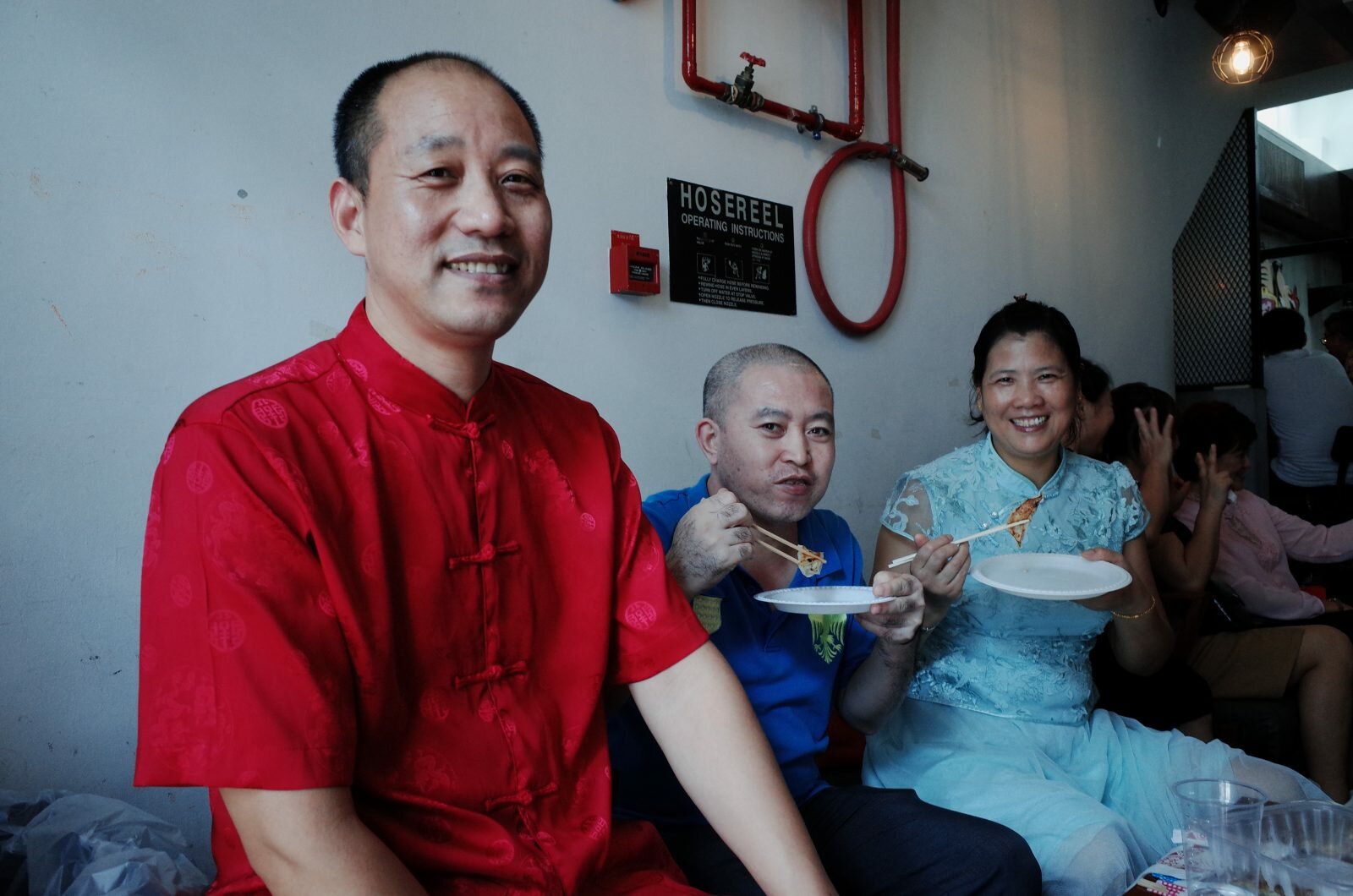In Chinese culture, traditions are sacrosanct; food comes in a close second. Eating jiaozi with your family during the Lunar New Year, for one, is meant to symbolise reunion, longevity, and good fortune for the coming year — but many Chinese migrant workers in Singapore don’t get that luxury.
It’s why activist and Labour Arty founder Ou Ningfei has been holding annual ‘dumpling parties’ for the last three years, cooking upwards of a thousand doughy treats for hundreds of Chinese workers stuck in Singapore over the holiday.
“It’s something important symbolically, especially to migrant Chinese,” explains Ou, who hosted over 100 Chinese workers at his last Dumpling Party in February.

(Image: Labour Arty)
For the Chinese-born Ou, its his way of continuing his mother’s charitable works when they first moved to Singapore — and his way of providing a semblance of home for these workers, so far removed from their own.
“When I was young, my mom helped out a lot with a community that supported Chinese migrant workers, so I ended up interacting a lot with them too,” he says.
“I heard a lot of their struggles and stories, and there came a point where I returned from my studies abroad and I realised that I had enough social capital to start something on my own.”
-

Ou rallies family and friends to help cook thousands of dumplings for the event.
(Image: Ou Ningfei) -

Dumplings galore.
(Image: Ou Ningfei)
Ou founded nonprofit Labour Arty in 2017. It describes itself as an initiative that uses art to bridge the gap between Singaporeans and migrant workers — a community that Ou says is often isolated and exploited.
“These foreign workers are always out of sight, out of mind,” he says. “They’re always behind high walls in dormitories, in shipyards, or behind construction fences. They’re very much invisible.”
It’s why many of Labour Arty’s projects put these workers front and centre. Their largest exhibition, Blind Spots, premiered at the Objectifs Centre for Photography & Film in 2018, and featured migrant workers in a common scenario: packed into the back of a lorry.

(Image: Ou Ningfei)
Each image was accompanied by a quote from a migrant worker about their daily commute. Bangladeshi worker Abdul Taslimah, for one, says that his morning ride can be ‘relaxing’ — and that he often listens to music — but he avoids lying down because of the bumps in the road.
As Ou explains, these snapshots weren’t out to cull sympathy from Singaporeans, but to draw parallels and similarities — like searching for a moment of respite in a space of transition.
“Sob stories are well and good, and they can be very powerful, but we want to change perceptions,” he says. “We want people to be more welcoming of migrants in Singapore, because people don’t intentionally interact with them.”

(Image: Ou Ningfei)
During the height of the pandemic, Ou busied himself with assisting smaller dormitories communicate with the relevant authorities, and helping smaller initiatives coordinate their own outreach efforts.
It’s tiring work, he says, especially given how slow change is to come — but he’s been heartened by the outpouring of support.
“I’m comforted to know that there’s been so much more support than expected for migrant workers during this time,” he says. “A lot of Singaporeans have stepped up to offer help, resources and time to speak up for these migrant workers.”
“I think my job will only be done if we can talk to these migrant workers as equals — like how you’d treat a fellow Singaporean.”
